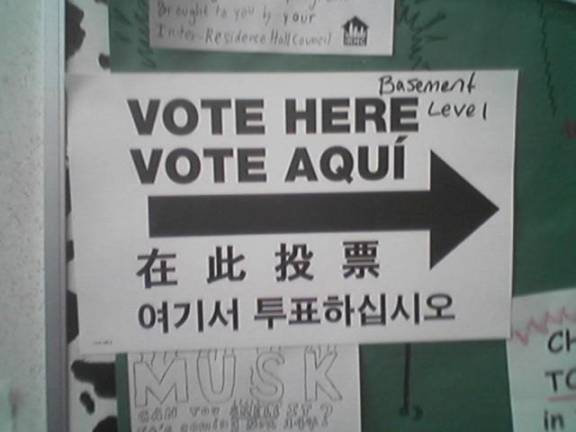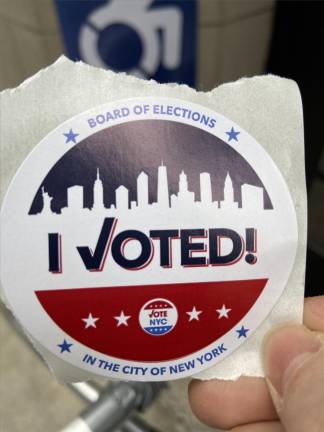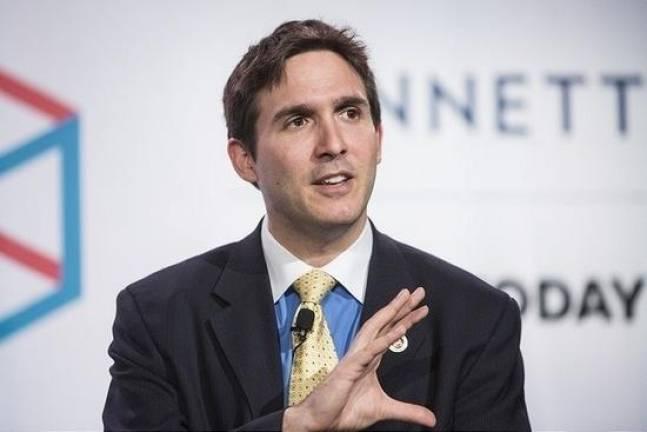State vs City Clash on Election Reforms
State BOE co-chair’s request to speak about recommendations for November is rejected by city BOE



UPDATED, Aug. 11 at 2:50 p.m.:
After a bungled primary election, concerns are mounting over whether election officials will be able to repair past mistakes in November or if dysfunction will lead to voter disenfranchisement.
In June, the state expanded absentee voting efforts so that polling sites would not become crowded during the coronavirus pandemic. The massive number of New Yorkers voting absentee — 400,000 in all — was a challenge for the city’s Board of Elections, which took six weeks to finish counting ballots and certifying results in a few key races. But critics are saying the problems began earlier in the process, with the BOE failing to mail absentee ballots in time for voters to meet the Election Day deadline. A reported 34,000 absentee ballots were sent out just one day before the June 23 primary.
The city BOE will be tasked with remedying these problems all while operating on a budget nearly half the size of the 2020 fiscal year. The board’s budget was slashed during the June negotiations, leaving them with $135.6 million for 2021 fiscal year. Of the $92 million cut from the budget, $80 million had been earmarked for early voting.
Compounding these complications is a city BOE that some characterize as unwilling to adopt reforms that advocates say are badly needed. In an email acquired by Our Town, Douglas Kellner, who co-chairs the state Board of Elections, asked city BOE commissioners Patricia Taylor and Frederic Umane on July 31 if he could speak at an upcoming board meeting to go over recommendations for how the city board should prepare for November. Kellner claimed that the commissioners rejected the request.
“I regret that the commissioners have declined to afford me the courtesy to present my recommendations directly to the commissioners,” Kellner said in an email back to the city board commissioners on Aug. 4. “Nevertheless, I request that you distribute the attached memorandum to the commissioners and the executive staff, and that we try to work together to make it possible for every eligible voter to cast a ballot and have that ballot counted notwithstanding the very significant hurdles that we need to overcome.”
In his memo, Kellner talks at length about the need to improve the efficiency of processing absentee ballots and absentee ballot applications. He said the board should encourage voters to request absentee ballots via the city’s online portal rather than mailing in an applications in order to ensure that voters receive ballots on time. He also said the board should do more to highlight the city’s early voting program, as well.
The city BOE denies that the commissioners refused Kellner’s request.
“As a Board, we have never closed the door or denied suggestions from anyone to continue to find ways to improve our operations,” Commissioners Taylor and Umane said in a statement Tuesday. “To say so, is unfair. We have and continue to maintain an excellent working relationship with the staff at the NYS Board of Elections, whom we work with on a daily basis. Indeed, we thank them for their guidance and support during these unprecedented times.”
The commissioners said they had asked Kellner to come on a day more suitable to their schedule, but he sent the memo instead.
“We invited the Commissioner, who was seeking to speak to us in his individual capacity and not as a representative of the State Board, to meet with senior management and the Commissioners, on a day that we were not certifying the election and paying tribute to our staff for their hard work and honoring the losses that we suffered,” the statement said. “Commissioner Kellner chose to submit his comments in writing instead, which staff and the Commissioners are currently reviewing.”
“A Crisis Moment”
Elected officials and Democratic Party officials were outraged by the city BOE’s supposed refusal to even meet with Kellner to discuss these recommendations.
“The failure of the NYC Board of Elections over the last several elections has been appalling,” State Senator Liz Kreuger said in an email forwarding Kellner’s correspondence with the city BOE to a long list of elected and party officials. “If we are in politics or party leadership or press, we all share some blame.... I believe we are at a crisis moment.”
A slew of political organizers, elected and party officials are looking to put pressure on the city BOE ahead of public hearings in Albany on Tuesday that are intended to review the handling of June’s primary election.
In a letter from the Lexington Democratic Club — which was also signed by City Council Speaker Corey Johnson; Manhattan Borough President Gale Brewer; Assembly Members Dan Quart and Rebecca Seawright; State Senator Liz Kreuger; Council Members Keith Powers, Helen Rosenthal, Mark Levine and Ben Kallos, among others across the boroughs — called on the city BOE to adopt Kellner’s recommendations, and stated that any delay in processing absentee ballots, as well as the disenfranchisement that results, would be unacceptable.
“The 2020 general election is a crucial event in the political life of our nation. We recognize the hardships currently assailing us, but stress that the Board of Elections has a duty to take any and all steps necessary to ensure the full participation of the electorate writ large – including those unable to physically vote at a polling site on Election Day,” the letter read. “We urge a rapid and thorough preparation from our government to allow us all to participate in our political system. We lay the responsibility for assuring a viable and functioning democracy at the door of the Board of Elections and assert our willingness to support new approaches to ensure a swift and efficient election in November.”
Primary Concerns
Ben Kallos said he and others have been pushing for the city BOE to adopt reforms for more than a decade.
“For as long as I’ve been an elected official, the city Board of Elections has maintained that they’re accountable to no one — other than the county chairs,” said Kallos. “And county chairs are ... I don’t know who the county chairs are accountable to.”
Kallos said his primary concerns include the drastic budget cut, the BOE’s ability to process absentee ballot applications and send out the ballots to voters in time.
“We are in a situation where we could easily see a million absentee ballot requests this year and the Board of Elections has half the funding it did last year,” said Kallos. “(The BOE) wasn’t able to get the absentee ballots out. We need to staff them up, get the absentee ballots online electronically, and get them sent out in as much of an automated process as possible.”
The city BOE did not respond to a question about how it would operate in November under a limited budget.
Considering the city BOE’s current posture, Kallos said he’s just about as pessimistic as any New Yorker about the likelihood of needed reforms being made by November.
“I wouldn’t be in the job that I have unless I thought that we could make a difference and make change, whether drastic or iterative,” said Kallos. “I’m just trying to make things better than they were yesterday — which is a more eloquent way of saying like, I’m hoping for the best but planning for the worst.”
“The 2020 general election is a crucial event in the political life of our nation ...We lay the responsibility for assuring a viable and functioning democracy at the door of the Board of Elections and assert our willingness to support new approaches to ensure a swift and efficient election in November.” Letter from Lexington Democratic Club signed by many NYC elected officials